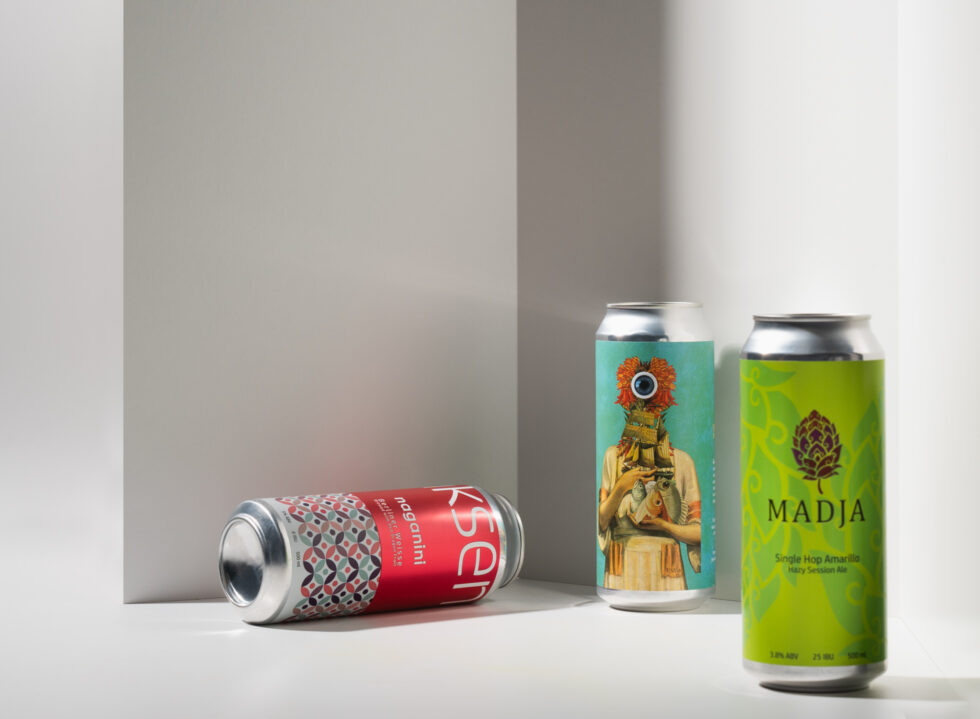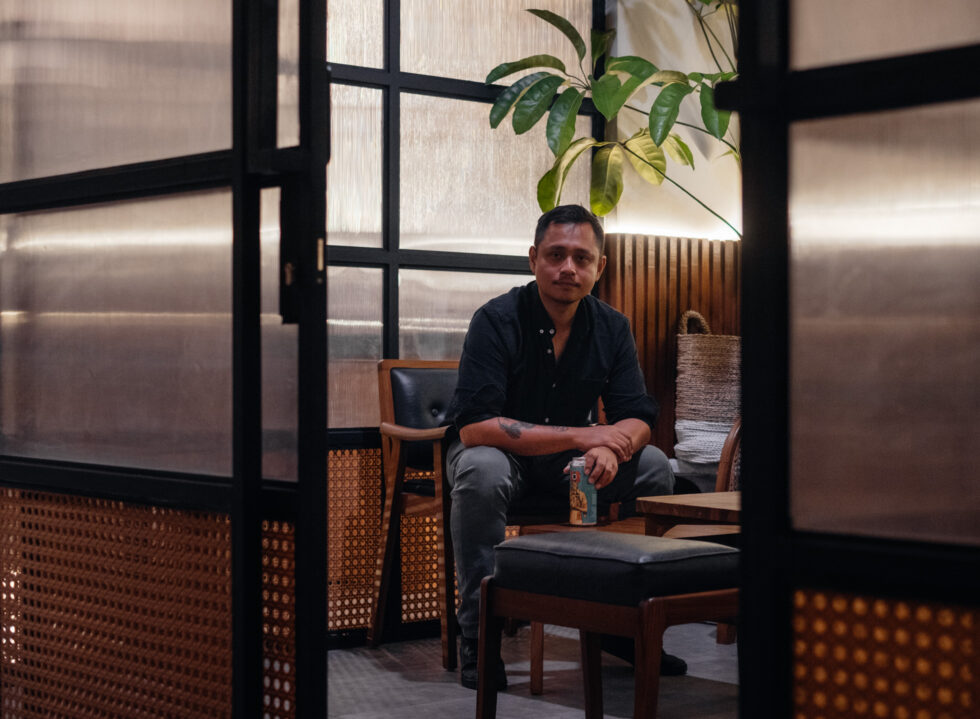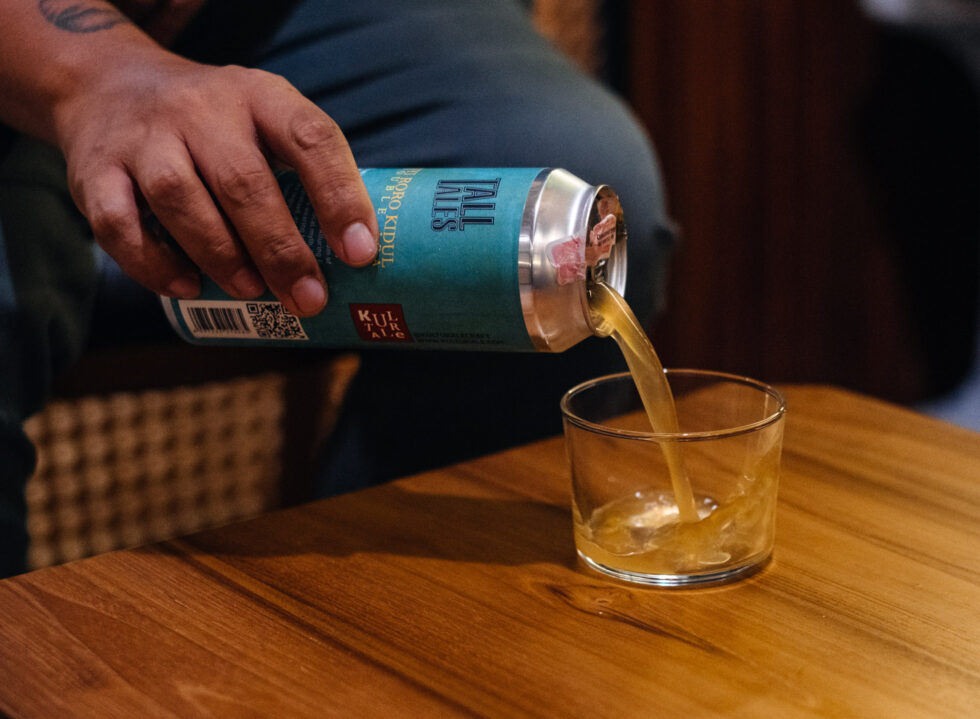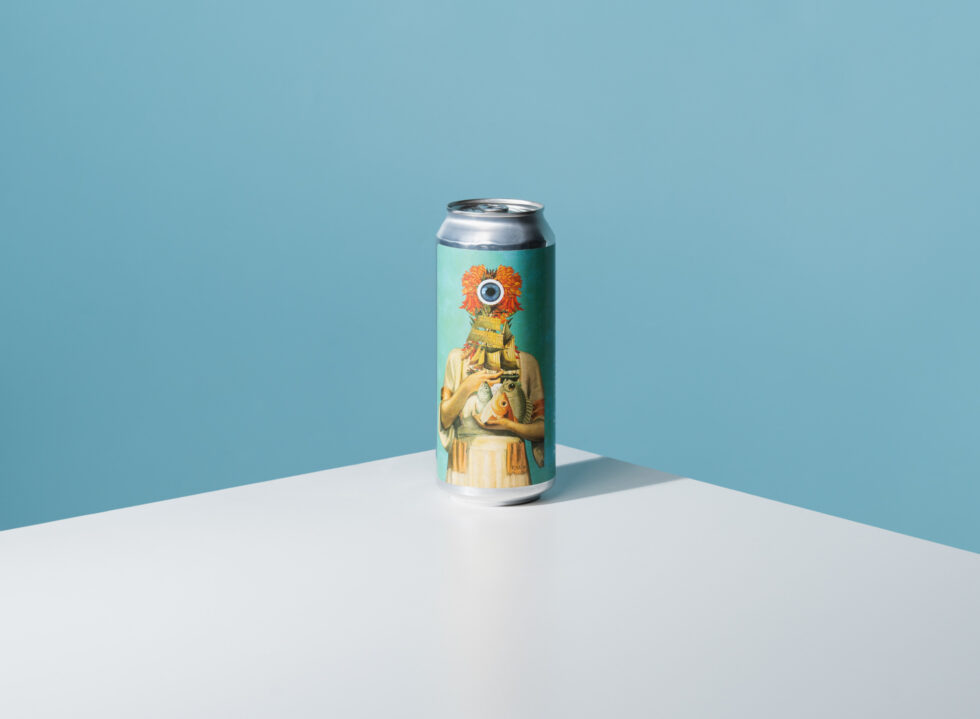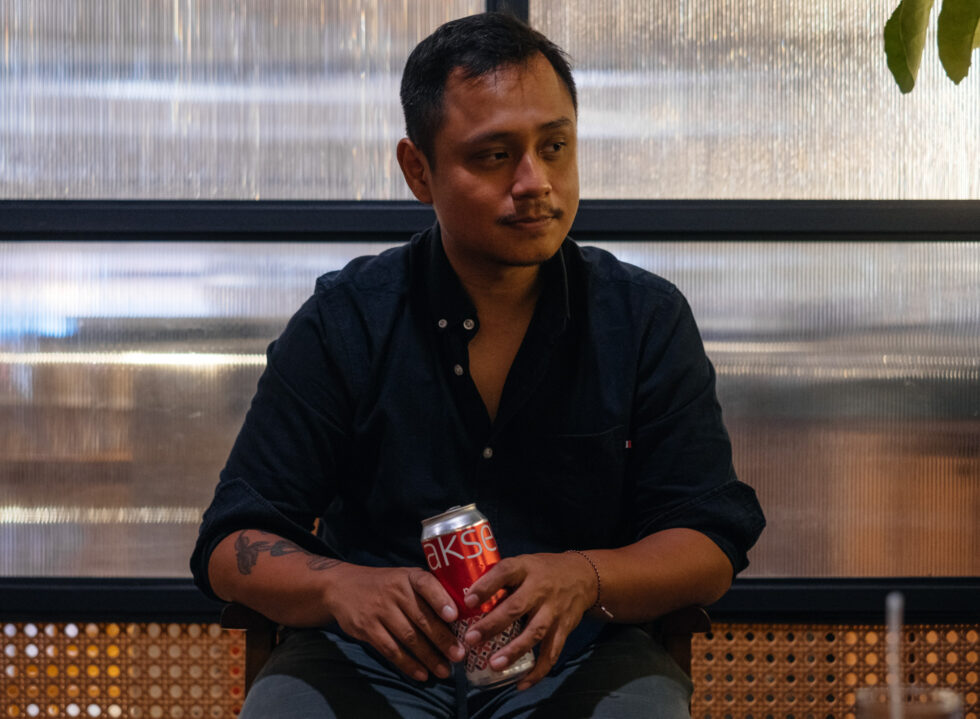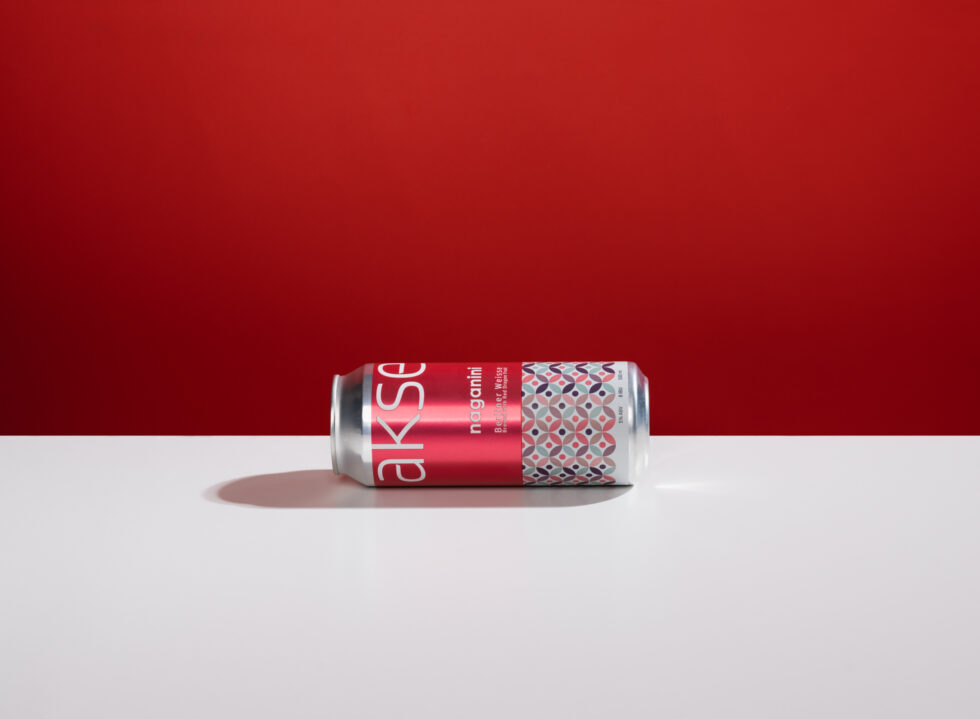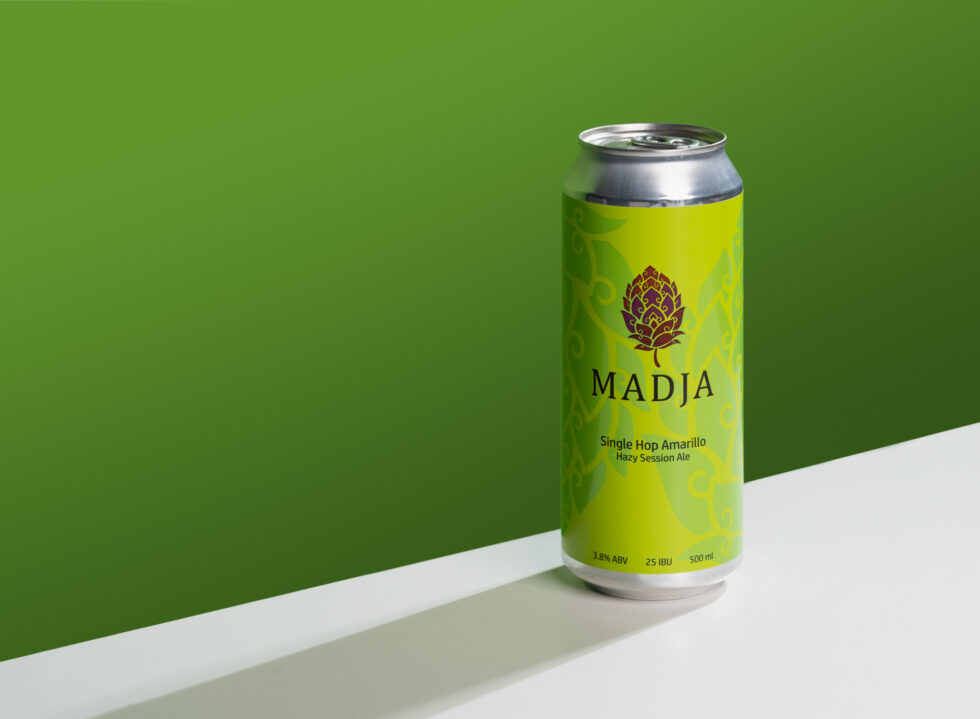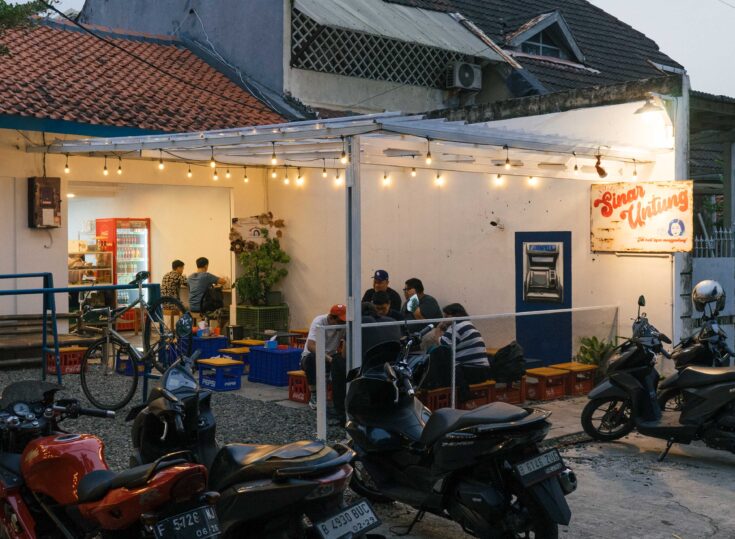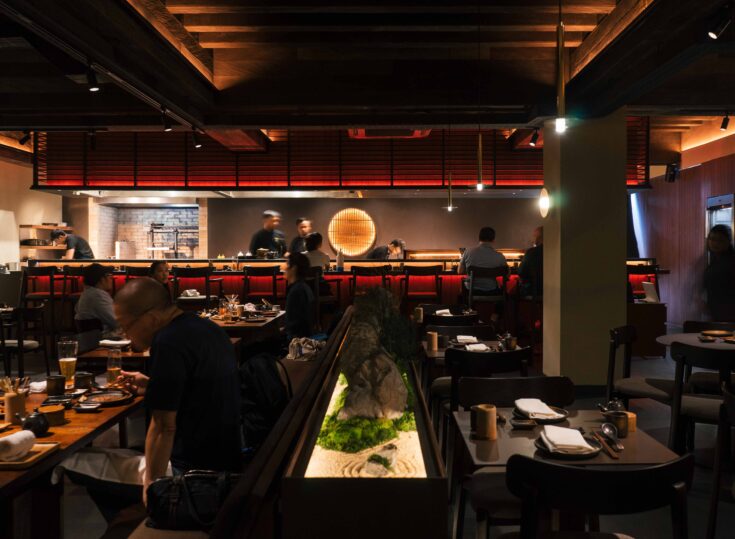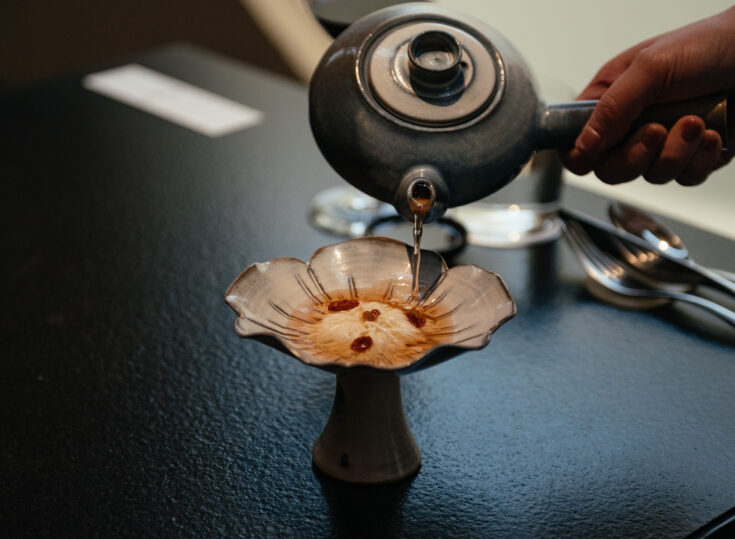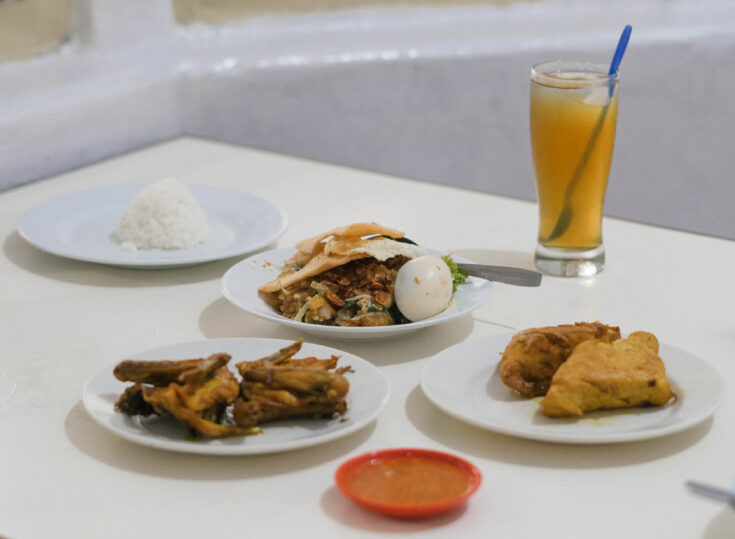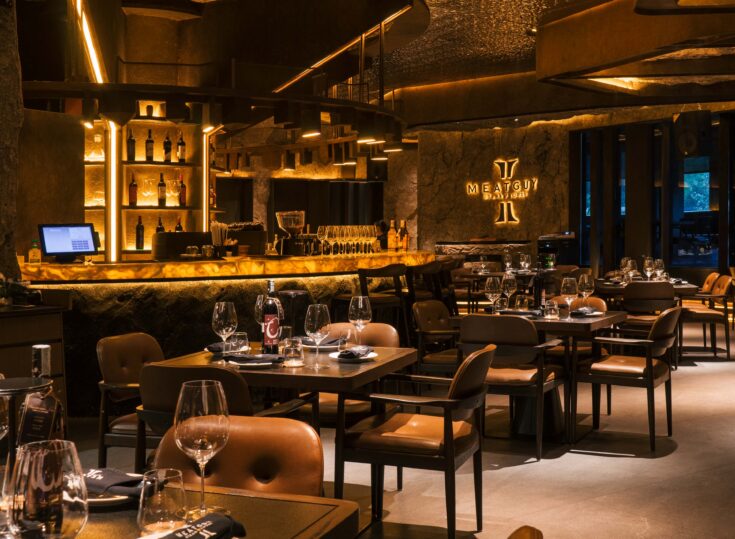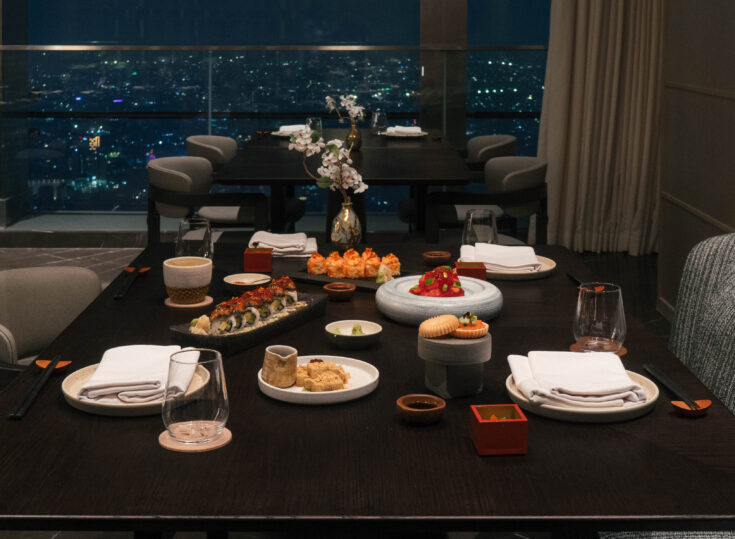When specialty coffee rose in popularity back in the early 2010s, Laki Gushary observed a noticeable shift in the way customers developed an appreciation for flavours and craftsmanship—a pattern he now sees within the city’s drinking culture.
“From drinking [alcohol] just to get drunk, people are now drinking to explore the variety of flavours that they can experience. For example, there are more cocktail bars now. That’s because more people now prefer to sample cocktails rather than sharing a bottle with the table,” the former fashion photographer mused during an interview at Lokaholik.
Not just cocktails, craft beer—which fills a role in the beer market much in the same way as specialty coffee in its respective field—has also risen in prominence. Enter Kulturale, for which Laki is the co-founder, director and head brewer. Since its launch in October, the craft beer brand can already be found across 30 places within the city alone, marking its quickly growing reputation in Jakarta’s drinking scene.
Though Kulturale is just a couple of months old, Laki has been learning the trade for over ten years. He began by studying under an expatriate; but when his teacher left for Japan, he had to learn on his own by exploring craft beer communities in other countries and resorting to studying home brewing via YouTube using simple equipment. “All you really need is a pot, a tofu filter and an airtight bucket for the fermentation.”
Back then, Laki would bottle and sell his home-brewed creations at Coffeebeerian, a pub in Senopati that specialises in both coffee and craft beer, which he co-founded in 2012. “I couldn’t pick between the two,” he laughed. “Craft beer is interesting to get into because you’d never get tired of it. It comes down to how far you’re willing to push the quality of your beer, and there are so many types of beer that we’ve yet to explore due to the lack of choices available here.”
The bottled craft beer didn’t immediately get a positive response at first, with some disliking the bitterness and likening it to jamu or local herbal drinks. But Laki recalled how one day, members of the British Chamber of Commerce in Indonesia noticed his IPA (Indian pale ale). They enjoyed it so much that they brought their coworkers along the next day—a month’s worth of beer was sold that night. “That’s when the ripple effect happened [for my craft beer].”
Changing with the seasons
Today, the local craft beer scene has become steady enough for Kulturale to launch with an all-seasonal lineup that changes every four months, reflecting their dedication to staying “true to the idea of craft beer” by catering to the explorative nature of craft beer enthusiasts.
“In essence, the main ingredients remain the same: malt, hop, yeast and water. But the end result varies depending on the recipe as well as brewing and fermentation technique,” explained Laki. “The craft beer business won’t be able to survive if each person in the community only likes one type of beer. They’re usually loyal to the brewery, not the product.”
Brewing in Serang, Kulturale divides its products into three categories, each with its own special characteristics: the beginner-friendly Madja, the experimental and flavoursome Aksen and the bold and complex Tall Tales.
Through Madja, Kulturale explores how different hops play a part in extracting flavour notes and aroma from the beer. For the first release, Amarillo hops, drawn on the can’s label by Bali-based artist Ade Itameda, are used to lend the drink its floral and fruity notes. “Like coffee beans, there are many types of hops depending on where they grow and their variants.”
Meanwhile, Aksen (which translates to accent) adds twists to the recipes by incorporating different local ingredients and wiring the beer style around them. Currently, the fruity Berliner Weisse-style beer got its red hue from dragon fruit sourced from West Java.
As for Tall Tales, the brewers draw inspiration from Indonesian folklore. For instance, the story of Nyi Roro Kidul, a mythical queen believed to be the ruler of the southern sea, is adapted into an artwork by visual artist Resatio and reinterpreted into a double IPA using three different types of hops, producing a layered and expressive flavour created to please aficionados.
“When it comes to producing alcoholic beverages in Indonesia, you either go big or go home,” said Laki.
Trouble brewing
Laki’s remark is not to be mistaken as a bold declaration on his part, but rather a comment on the reality that has made it hard for local tipples to grow and flourish in the country. Here, alcohol is political. In fact, since the ’90s, the government has stopped issuing new permits for alcohol producers.
Those trying to get into the business have to resort to buying out or making deals with companies that have already procured the licence, alongside facing social and cultural limitations. It’s why many brewers are based in Bali, where the traditional liquor arak is a staple, the drinking culture is already prominent and numerous long-standing producers can be found.
“There’s no space for micro and medium breweries in this system. [The community] have already tried to push for change in the law and enable smaller-scale producers. We were successful—but it only lasted 11 days before the media got a whiff of it and misinterpreted our intention. The revision was immediately revoked,” shared Laki.
Opportunity to come together
The status quo of the local alcohol industry was also what prompted the establishment of Kulturale. It’s not only interested in introducing variety to the beer market by way of its own products; one of its goals is to facilitate other brewers—particularly small ones—under the umbrella of the company, thus fostering an environment where the craft beer community can thrive as a whole.
“The craft beer market is still in its early stages. But the numbers have continued to grow, three new breweries will be launching in Bali soon and another two in Java. Not to mention the ones from Sumatra and Sulawesi. The potential is big because when you look at other countries, some of them have a brewery in almost every district,” told Laki.
Once the country has reached that point, “Hopefully, we’ll have our own national beer style. A Bali lager, maybe?”
